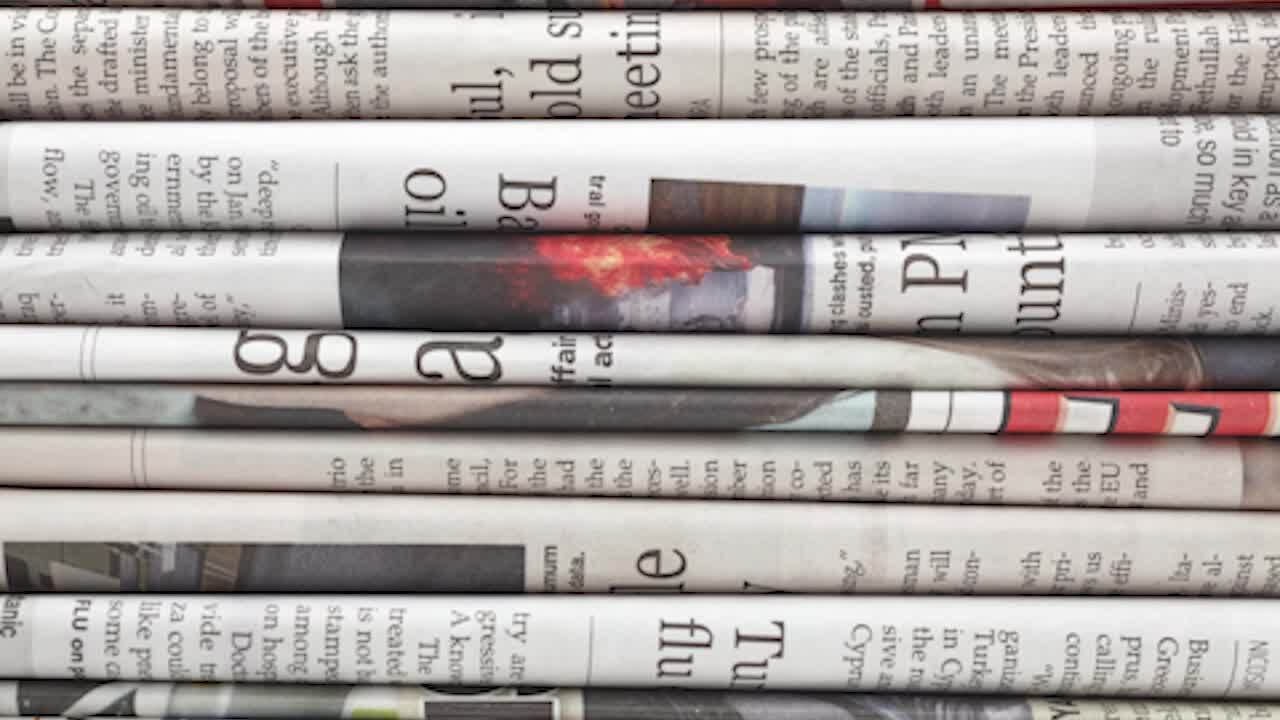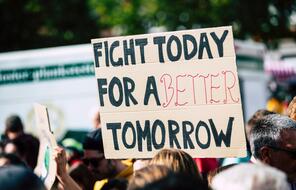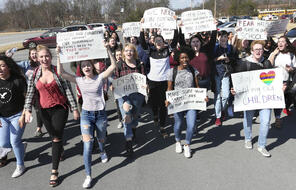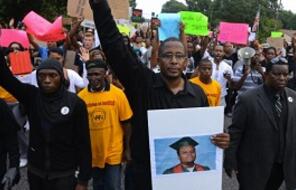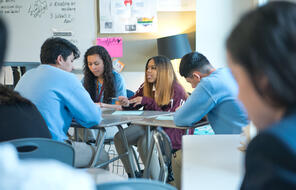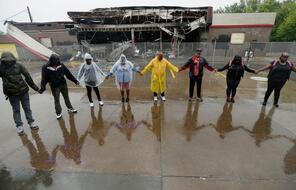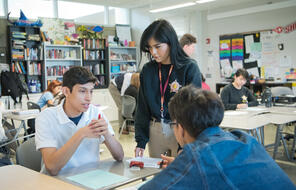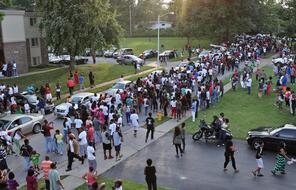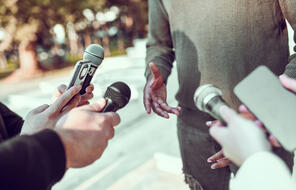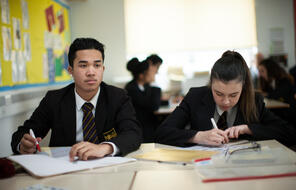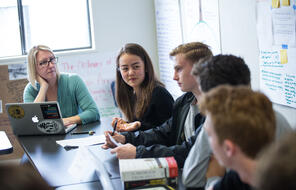[MUSIC PLAYING]
I'm Laura Tavares with Facing History and Ourselves. This week in What Makes Democracy Work, we're talking about the freedom of the press with people who work in the media in two different democracies, the United States and South Africa.
South Africa is a relatively new democracy dating from the country's emergence from racial apartheid rule in the mid 1990s. The United States is a much older democracy. But both countries' constitutions enshrine the freedom of the press.
We started our conversation with Sam Fleming the director of news and programming at WBUR, a Public Radio station in Boston, Massachusetts. We also spoke with Judith February, a columnist, political commentator, and civil society advocate in Cape Town, South Africa.
Journalism is essential to democracy. Because without a free press, we would end up being like many of the countries that we all look at and go, oh, my, how do people live in those places? And if we couldn't trust the information that we read and the journalism that we seek out, if we couldn't trust that, basically we would all be kind of wondering, well, what's true and what's not true?
And I think we all know that journalism is not-- it doesn't equal truth. What it equals is information, hopefully, facts-- presumably facts-- and then context and analysis around those facts. And you have to read enough sources to kind of put together your own sense of what's true by the reading and the thinking and the talking and conversing that you do with some of your fellow citizens. And that's what a democracy is all about.
Judith February.
A good democracy, one needs active citizens. You need the rule of law. You need the judiciary to enforce the laws. And you also need a vibrant media who is exposing if there is any corruption, but also providing people with vital information. It's trying to say that information is the oxygen of democracy. It keeps democracy's wheels turning. And we've seen that in South Africa.
The right to information has been crucial in many of our public interest, court cases that we've brought on issues of anti-corruption for example. It's investigative journalists who are doing the hard work in terms of getting that information out. But again, all of these things depend on us being active citizens.
I asked Sam about what it means to do good journalism right now at a time when the United States is politically divided and many people, including President Trump, have criticized journalists and questioned the integrity of the media.
It's mostly that to not be distracted by the din that we're surrounded by. I use that word loosely. But when you think about all the information that everybody now has on their iPhones and websites and their inbox and we're deluged with information. And it's ironic, isn't it? But it's not filtered.
And so I think it's really important for us to concentrate on what we do, what we've always done, and just make sure we keep doing it really well, make sure that we don't bring any bias to the table. Because I think that's been a challenge. When someone denigrates you and kicks you in the gut, it's hard not to want to fight back. But we should fight back with good journalism and not with opinions.
Judith February explained that in South Africa, access to news media has been important in educating people, especially young people about their rights and responsibilities and in helping South Africans cultivate a vision of their democracy.
We've seen broadcasts on television, for example, of constitutional court cases. And for me, that's good. Because it provides you with a picture of what the court does, the way in which it tries to shape rights.
You don't always have to look at it at such a high level. It's a really basic thing. My right to speak, my right to call into a radio program, my right to read something that I want, these are all constitutional rights. And so I think that and it feeds into, obviously, our understanding of democracy and what kind of country is it that we want to be.
We say we want to be a multiparty democracy, non-racial, non-sexist. What does that mean in reality? We need to give flesh to that. And so I think there's a massive opportunity for young people to actually start to engage with that and to learn and think about it carefully in schools And that it's not just a legal issue. There's some rights which are inalienable, our right to life.
And so therefore we should all-- those freedoms need to be exercised and, particularly, the right to information. And we need to make that a part of our lives, a part of our discourse.
[MUSIC PLAYING]
I asked Sam Fleming what news literacy skills young people need to be informed and effective citizens.
Well, I think it's probably several layers of advice. The first one is to look at facts and to try to determine, as you're reading stories and hearing about things, whether something is true or not. And then once you think that there are facts on the table, then you can start reading analysis and context around those facts to start doing what we all call critical thinking about what this means.
What does this mean for you as an individual? What does it mean for your community? What does it mean to your friends? What does it mean to the country? What does it mean to the world?
And if you start thinking about journalism and consuming news with those kinds of layers in mind, I think you have an easier time, basically, one, not being persuaded one way or the other, depending on who it is that you're listening to and thinking for yourself, and hopefully not being led into thinking a certain way and then make decisions for yourself.
[MUSIC PLAYING]
To learn more about how citizens make democracy work, please visit us at facinghistory.org/democracy-and-us.
